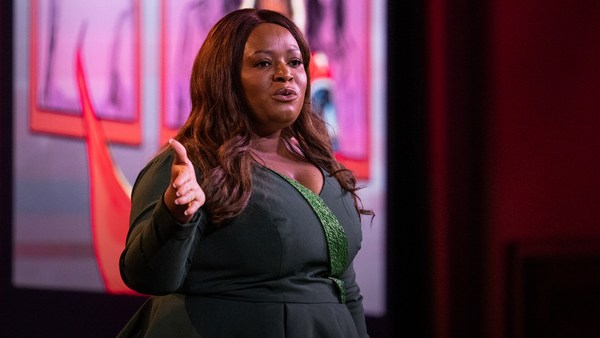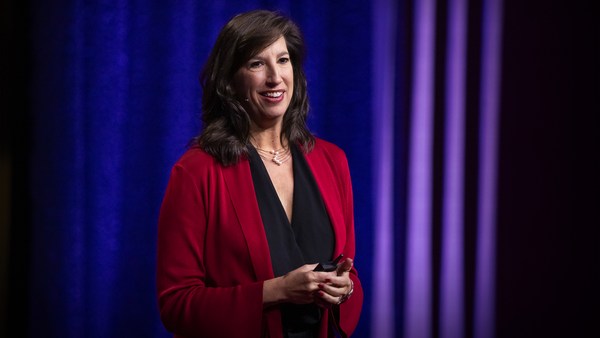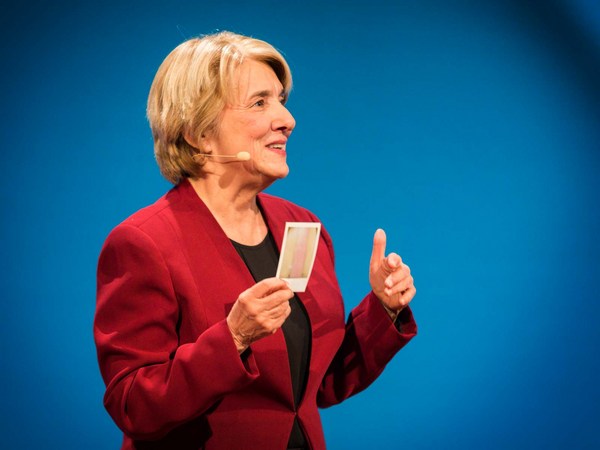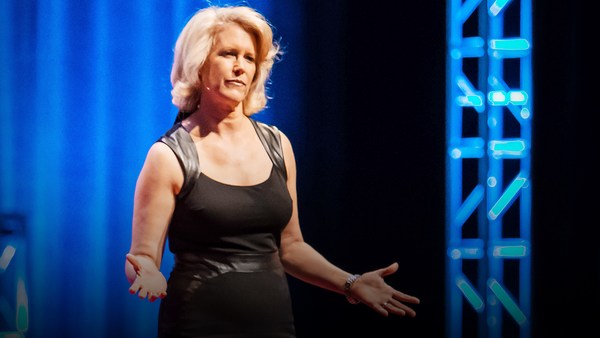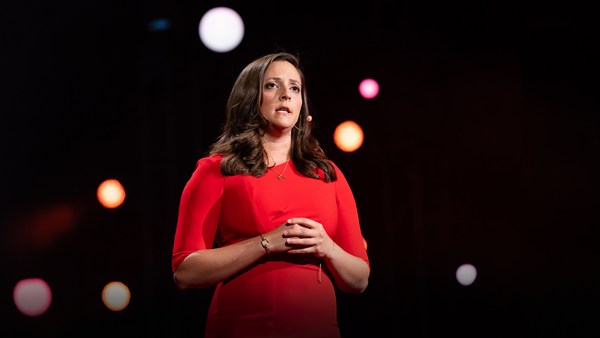The history of the country I come from, the Democratic Republic of Congo, has been one of colonizing, disempowering, extracting resources and removing the people's agency over their bodies, their land, their hearts, their destinies. The reason for this unrelenting violence is an ongoing proxy war for the country's vast mineral resources, which are essential to the production of your computers, phones and electronics. In Congo, rape is a weapon of war used by militias to rip apart our communities, resulting in catastrophic sexual violence, political upheaval, displacement and disease.
But the Democratic Republic of Congo is also a place of extreme beauty, lush greenery and lakes and forests, where anything can grow if you plant it. Our people are beautiful, fierce, generous. And our women are formidable, creative. When they dance, they change the world.
After my best friend was murdered in 1998, I devoted my life to the women of Congo and to ending the sexual terrorism that plagues our country. City of Joy, located in Bukavu, in eastern DRC, is a transformational leadership community for women survivors of gender violence that serves 90 women ages 18 to 30 at a time for six months. Women are selected based on their leadership potential by our graduates who are spread across the country, turning pain to power. City of Joy returns women to their bodies, educates them about their rights and develops them as leaders who will one day take back their country.
City of Joy is a physical place, but it is also a desire, a vision, a metaphor for turning pain into power. And by power we mean care, compassion, community. We opened a sanctuary for healing and a revolutionary center in the most impoverished, impossible place in the world, and we were able to succeed at our mission. This may look like a miracle, but it is based on a set of hard-earned guiding principles. I share them with you in the hope that they may inspire you.
[They] are: rebirth is possible. Firstly, we believe that there is no woman, no matter how hurt or violated, broken or lost, who cannot be restored. This, like all the tenets, is a living principle, repeated often at City of Joy. We learn from experience that women who have survived the most violence can, with support and training, become the most visionary leaders. Most women who come to City of Joy have been marginalized due to the stigma surrounding rape.
Jane Mukunilwa was one of those women, born in the village of Lulingu, one of the worst places for women. In 2005, after being physically and psychologically destroyed through gang rape, Jane underwent nine surgeries to repair the damage that was done to her body. During a long hospital stay, Jane committed herself to helping other women who had undergone similar atrocities, and she imagined creating a shelter of sorts for them. During a chance encounter in May 2007, Jane revealed her deepest desire to V, formerly Eve Ensler, to build a place for women survivors to live together so that they could heal, transform and lead. Jane was in the first class of women at City of Joy, where she proved that change is possible even after one's life has seemingly been destroyed. Jane arrived at City of Joy illiterate, and she graduated able to read and write, with the skills to rebuild her life. She was able to buy a plot of land and build a small house. She joined the staff and is a strong role model for other women living there. When she arrived, her name was Jeanne.
(Applause)
When she arrived, her name was Jeanne. She renamed herself Jane. Jane is now a powerful leader and a woman of magnificent energy, vision and life force.
Two: grassroots women know what they need.
(Applause)
They don't need direction or coercion from outside funders. They need resources and respect. The women of Congo envisioned the City of Joy, and they are the ones who run it. Our sisters in the West help by providing resources and sharing our story by being wings at our back. Because of this, we have been able to take risks, become innovators. City of Joy is modeling a new kind of program for survivors, one that has moved from social service to social justice.
Three: women heal in community. Women cannot heal outside community, for as long as the community remains ill or sexist or violent, women remain oppressed and unseen. At City of Joy, women come to understand that their healing is intertwined with their sisters' healing.
For example, there is no individual therapy at City of Joy, only group therapy. As your sister changes and grows, you change and grow. As she is able to tell her story, it encourages you to tell yours. As you watch your sister let go of her anger or sadness, you begin to let go of yours. The collective healing of women leads to radical political awakening. It teaches women how to lead by learning how to lead by investing in the whole community.
Four: the Earth is a central part of our healing. I grew up with a deep love and respect of the Earth, and a vision for connecting the healing of women with the healing of the Earth. City of Joy was able to acquire a 350-hectare farm, which became a centerpiece for our healing. Turning pain to power to planting. There, women learn how to grow cassava, rice, avocados, mangoes, sweet potatoes, beans. They learn to take care of pigs and cows, to harvest nine tilapia ponds and dry fish, to make honey from beehives, to advance their understanding of permaculture. The farm is a living classroom, and we have witnessed the profound healing of survivors as they connect with and cherish the Earth. And the whole farm is stunningly beautiful, which is as healing in itself.
Five: art, theater, music, dance are critical to recovery. At City of Joy, song is the delivery system for many of our principles and ideas. We sing together and dance throughout every day. As we move our bodies, we move the trauma out and bring in new energy. Dance is central to healing, as it allows women to feel the expanse of their power and energy, to begin to love their bodies, to move in community, to express their creativity, to share community tribal dances, and thus remove cultural barriers.
To date, 1987 women have graduated from the City of Joy.
(Applause)
They are now leaders in their communities, educators, journalists, university students, entrepreneurs of small businesses, initiators of collectives, restaurant owners, farmers and advocates, etc. 1987 women have healed, studied and become empowered, and have joined into a network of love and revolution in over 64 villages and urban areas in the Democratic Republic of Congo. One --
(Applause)
1987 women have released massive trauma and horrific memories. They have danced, sang, learned their rights, performed plays, developed agricultural skills and come to love their bodies. 1987 women have become leaders in their communities and are no longer stigmatized for being raped. 1987 women have turned poison into medicine, isolation into community, shame into self-love, silence into story.
(Applause)
When we named our sanctuary City of Joy, we were told it was inappropriate to use the word "joy" when women had experienced so many horrific rapes and atrocities. But we learned the opposite is true. Joy is possibility, gratitude, and the bodily expression of freedom when pain has turned to power. Joy is the opposite of violence, a far more powerful force in the world. Love ignited in action.
Thank you.
(Applause)
